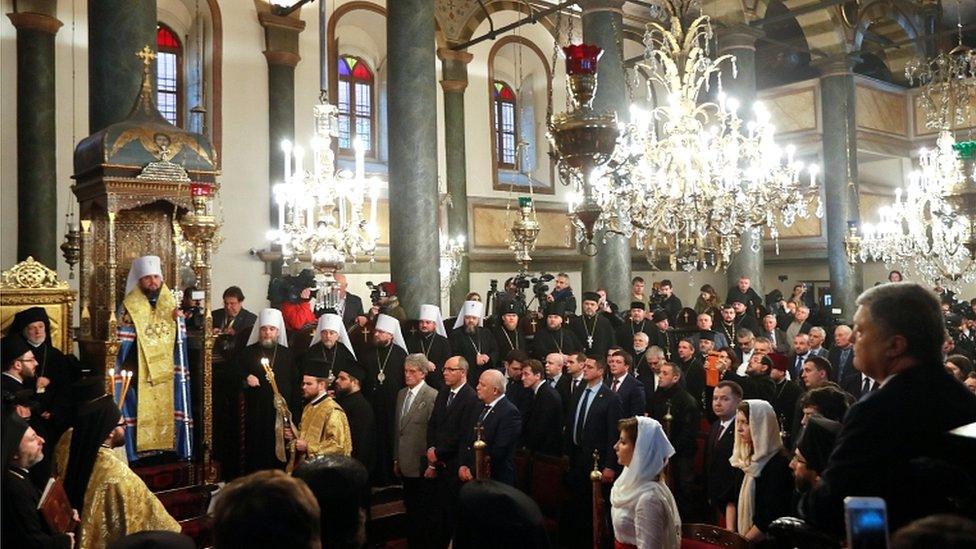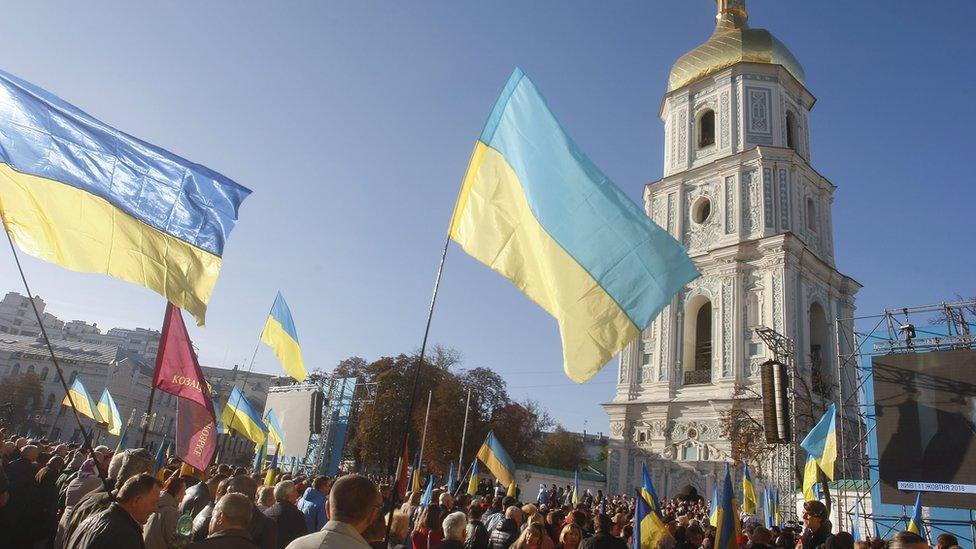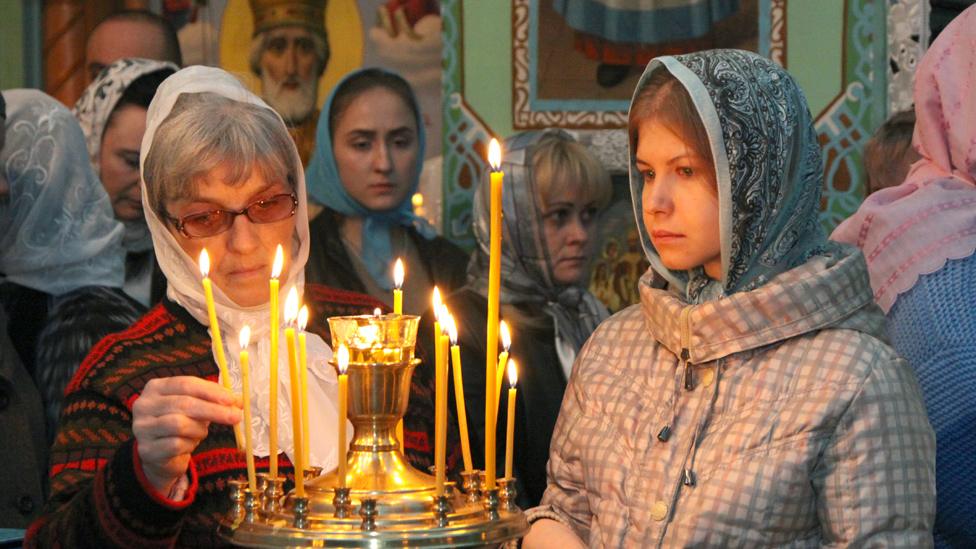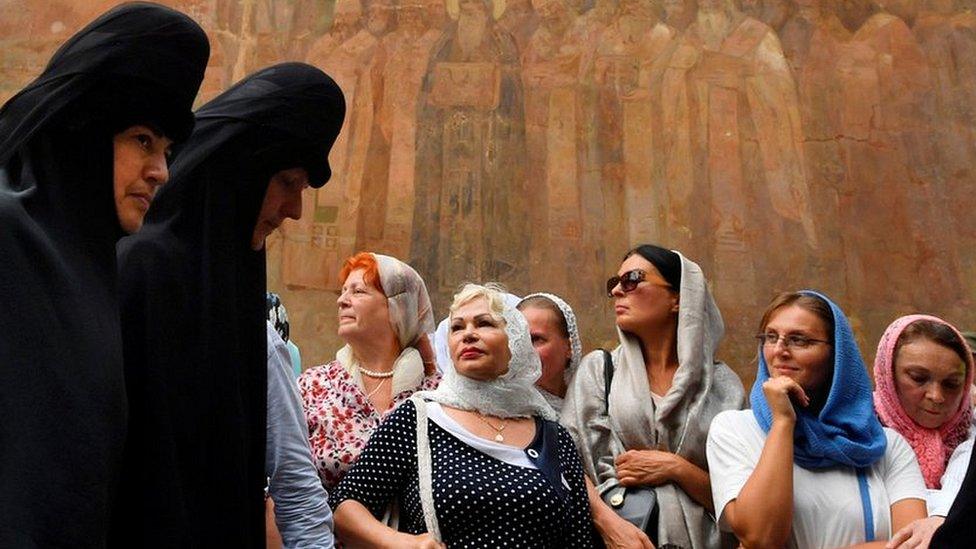Ukraine Orthodox Church granted independence from Russian Church
- Published

Ceremonies are taking place in Istanbul to recognise the independence of Ukraine's Orthodox Church from Russia
The recently formed Orthodox Church of Ukraine has been granted independence, marking a historic split from the Russian Church.
Ecumenical Patriarch Bartholomew - the head of the global Orthodox Church - has signed a document in Istanbul, Turkey, to that effect.
It formalises an October announcement.
The move has provoked a furious response in Russia, where the Church has broken off links, deepening a split in the worldwide Orthodox Church.
Ukraine's churches have for centuries been under the authority of the leaders of the Russian Orthodox Church in Moscow.
The decision may also lead to a lasting schism in the global Orthodox movement, says the BBC's Jonah Fisher in Kiev, Ukraine.
What are the events in Istanbul?
The Patriarch has signed what is known as a "tomos", a decree officially recognising an independent Ukrainian Orthodox Church, in the presence of Ukrainian President Petro Poroshenko, who travelled to Istanbul for the occasion.
Istanbul remained the centre of the Orthodox Church after the Muslim Ottoman Turks occupied the city, then known as Constantinople, in the 15th Century.
The event at St George's cathedral was broadcast live on Ukrainian television.
The tomos will be handed over on Sunday, and brought back to Ukraine on what is the Orthodox Christmas Eve. On Monday - Christmas Day - a celebration and rally will take place in central Kiev.
Upset at losing its Ukrainian parishes, the Russian Orthodox Church - which is the world's largest - has already cut ties with the Ecumenical Patriarchate of Constantinople, the spiritual authority of the world's Orthodox church after it recognised the Ukrainian Church's independence.
What is the dispute all about?
The Ukrainian Orthodox Church has been under the Moscow Patriarchate for centuries.
But tensions within the Church mounted after Ukraine became independent in 1991, with the collapse of the Soviet Union.
Before the council held in Kiev in December where the split was announced, there were three Orthodox Church branches in Ukraine:
The Ukrainian Orthodox Church (Kiev Patriarchate)
The Ukrainian Orthodox Church (Moscow Patriarchate)
The Ukrainian Autocephalous Orthodox Church
Now, priests from the Kiev Patriarchate and the Autocephalous Church become members of the new Church - the Orthodox Church of Ukraine.
The drive for Ukrainian Orthodox independence intensified in 2014, when Russia annexed Crimea and Russia-backed separatists seized a big swathe of territory in eastern Ukraine.

Many Ukrainians welcomed Constantinople's ruling last year, holding a prayer in Kiev
The Moscow branch of the Ukrainian Church has denied accusations that it acts as a tool of the Kremlin, and says it has tried to bring about peace in eastern Ukraine.
Earlier this year, the Ecumenical Patriarchate of Constantinople overruled its decision dating back to 1686 to transfer its jurisdiction over Kievan Orthodox churches (known as the Kievan Metropolis) to Moscow.
Now Moscow fears losing many of its 12,000 parishes in Ukraine.
Constantinople holds sway over more than 300 million Orthodox Christians across the world.

Read more on related topics:

- Published15 December 2018

- Published17 October 2018

- Published16 October 2018

- Published3 September 2018
